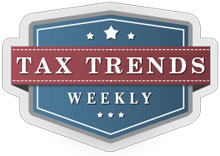Dallas Curbing Local Taxing Power?
Dallas City Council members are currently thinking about a tiny rollback of the city’s tax rate.
But it appears they are thinking as much about legislators in Austin as the 1.2 million residents in Dallas.
The Legislature’s efforts to curb cities’ ability to raise property taxes failed this year, but the battle scars aren’t fading yet. Some City Council members, currently considering the budget for the fiscal year that starts Oct. 1, want to show the Legislature that Dallas can exercise spending restraint — even if it only means returning a pittance to the average homeowner.
Kleinman wanted a deeper cut to the tax rate, but his colleagues are considering proposals now that would only save a few dollars a year for the average homeowner vs. the current rate of 78.25 cents for every $100 of taxable valuation. And the reduction would mean potentially millions of dollars less for city leaders who have a long list of wants and needs.
Still, the debate in Dallas was welcome news to the state Senate’s top property tax relief crusader, Paul Bettencourt, R-Houston.
The proposals would, respectively, save $8.74 and $2.64 a year for owners of $254,000 homes — the average home price in Dallas.
Bettencourt’s SB2 and other iterations would have lowered rollback rates. If it had become law, Dallas would have either had to cut at least $5 million and possibly as much as $17 million from its current proposed budget or trigger an automatic election. Currently, cities can go above the rollback rate and will only face a referendum if voters go through a petition process first.
Bettencourt has argued that large increases in valuations — Dallas homeowners and businesses averaged around 7 percent growth this year — are becoming too burdensome.
Several North Texas mayors called the bill draconian and said it would force them to take an ax to public safety budgets. Bettencourt said he “totally disagreed” with such threats, even though Dallas spends all its general fund property tax revenue and some of its sales tax revenue on public safety.
While he believes the amount the city is talking about is just “a tiny tax cut,” it would be “a public policy mistake” to not cut the tax rate at all, Bettencourt said.
Dallas City Manager T.C. Broadnax had initially pushed back against lowering the rate. He said his proposed $1.2 billion general fund budget has to cope with the city’s $10 billion of deferred maintenance, complaints about code and streets, increased pension costs and last year’s salary increases for police and firefighters.
“The things that we’ve got recommended in the budget, quite frankly, are things we should be doing, should’ve been doing and will need to do as a city if, in fact, we want to be a top-tier city,” Broadnax said. “And we are not even close to funding things at the level we should be.”
The City Council had also already cut taxes for seniors and disabled residents this year by increasing their homestead exemption to $90,000. The move made the city forgo $8.3 million in revenue.

